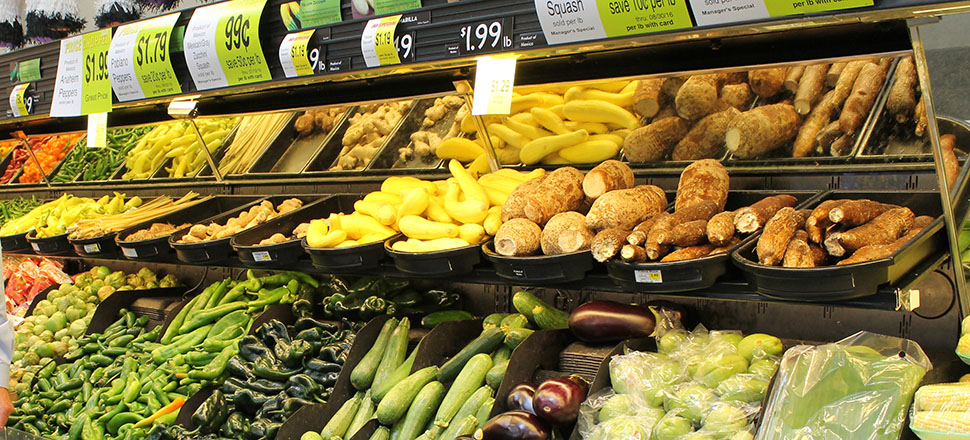Grocery Leader


In the summer of 2015, Balls Food Stores launched a Double Up Food Bucks grocery store pilot in five of its Price Chopper stores in the Kansas City metro region. The pilot was so successful, it continued year-round using fresh, locally grown fruits and vegetables.
Balls Food Stores has prioritized local sourcing, working with regional aggregator Good Natured Family Farms for years. Double Up builds on this history and helps Balls benefit from this support. Indeed, more than 70 percent of Double Up Food Bucks distributed was redeemed, increasing store produce sales by over 10 percent. There was an overwhelming amount of support for the program from SNAP and non-SNAP customers, cashiers, and store leadership. A $2.9 million 2016 federal grant will help expand Double Up to 117 grocery stores and 68 farmers markets across Missouri and Kansas by 2019, including more than 50 Price Chopper stores. Balls Food Stores' Chief Operating Officer is Mike Beal.
Here are his words.
BALLS FOOD STORES is a locally owned third-generation grocer, started by Mollie and Sidney Ball in 1923. We operate stores in the Kansas City metro area under a number of different banners, principally Price Chopper and Hen House. I started with the company right after college and managed stores. I did IT, I’ve been CFO, and now I’m chief operating officer.
We had five stores doing Double Up Food Bucks last year. This year we have 14. Double Up gives us a unique position in the market to offer something to customers that’s great for them and good for our partners, the farmers. Anything that we can offer that other grocers don’t—we look for those opportunities.
All of our team is committed to Double Up Food Bucks. With any program, we’ve learned if you don’t have buy-in from the highest levels, it’s not going to work. Store directors are behind it. We go over the top to find ways to advertise it, to make it known. We’ve got signage throughout the store for customers.
Cashiers are the most important teammates we have in the company. What we learned with Double Up is that one-on-one interactions between cashiers and customers provide the best opportunity to let customers know they’re building Double Up benefits. When our cashiers explain to a customer in the lane what they just earned and what that buys—there’s a strong connection. The customer sees on their receipt what they can get with their Double Up benefits on their next shopping trip.
Some people think it’s too good to be true. But cashiers are able to dispel that notion. And then if you get customers sharing it through word of mouth in church groups or school groups, it spreads a lot faster.
I heard feedback from our customers to our cashiers last year that some families had switched to produce for snack items. The produce department is one of the healthiest places that you can shop. I don’t know of anything negative that comes out of the produce department! You don’t have to be a vegan to know you’re helping your body with fruits and vegetables.
And Double Up is also great from a business perspective. We increased our local produce sales in participating stores 12 to 15 percent.
There’s a movement in the country for local foods. All the industry talks about it. Produce that’s grown in the area is fresher. As there has been more focus on healthy eating, local produce is an area where consumers are starting to pick up on it.
But that can be hard on low-income families. Double Up Food Bucks fits right into that movement to eat healthier and support local growers. It really helps those families who haven’t thought about buying healthier products because they’re just trying to stretch food dollars.
In the end, you’re helping customers with their families and their lives by offering the program. If that’s not reason enough to participate, honestly I question why you’re in this business. At the end of the day, for small grocers like us, being part of the community is one of the things the big boys can’t do. It’s a win-win. There is no downside.”
This is one profile in the Voices of Double Up in America series. Dig into the rest of this real-life storytelling series here.







